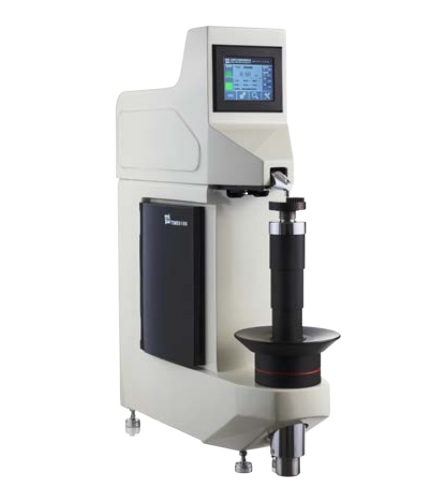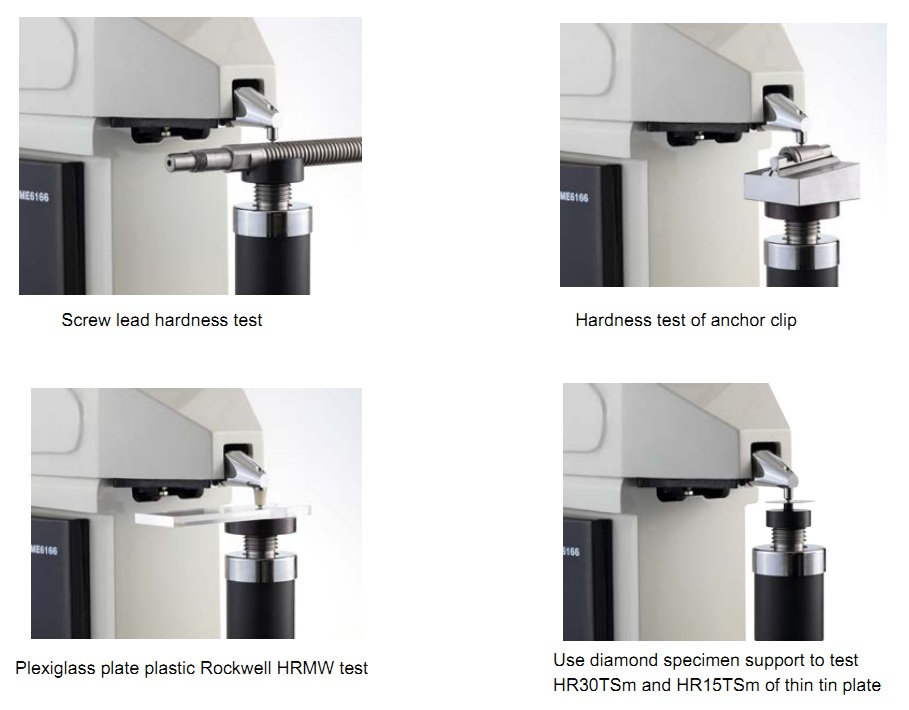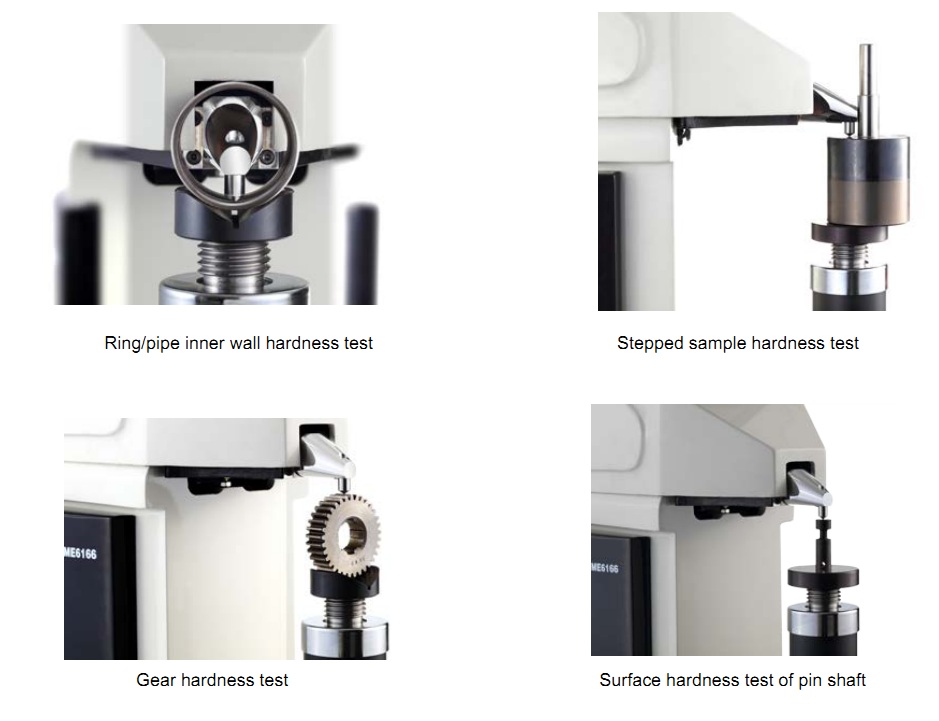This machine is a desktop Rockwell hardness tester, which adopts the Rockwell measurement principle. It is used for the hardness testing of carbon steel, alloy steel, cast iron, non-ferrous metals and engineering plastics. It features high accuracy, wide measurement range, automatic switch of test forces, automatic loading and unloading of main test force, digital display, and automatic printing of test results or communication with an external computer. It can be widely used in the measurement, scientific research and production of metrology, machinery manufacturing, metallurgy, chemical industry, building materials and other industries.
It conforms to the following standards.
- GB/T230.1-2018 Metallic materials-Rockwell hardness test-Part 1: Test method
- GB/T230.2-2012 Metallic materials-Rockwell hardness test
- JJG112-2013 Metallic Rockwell Hardness Testing Machines (Scales A,B,C,D,E,F,G,H,K,N,T))
- The accuracy meets the requirement of A1.4.7.5 in the American standard ASTM E18-18a, the error E and repeatability R within the allowable range in Table A1.3.
- GB/T 9432-88 Plastics-Determination of hardness by the ball indentation method
- JJG 884-1994 Verification Regulation of Plastic Rockwell Hardness Testing Machine
Main Technical Specifications
- Resolutions: 0.1HR and 0.01HR
- Test force unit: Kgf or N.
- Working temperature: 10℃~35℃
- Testing space: 250mm(vertical), 150mm(horizontal)
- When testing the hardness of plastics, the relative humidity should not exceed 45% to 75%.
- Clean environment, no vibration, no strong magnetic field, no corrosive medium.
- Power supply: single phase, AC, 220V/110V, 50~60Hz, 4A.
- Net weight: 100kg.
- Dimensions (L×W×H): 715mm×230mm×850mm







